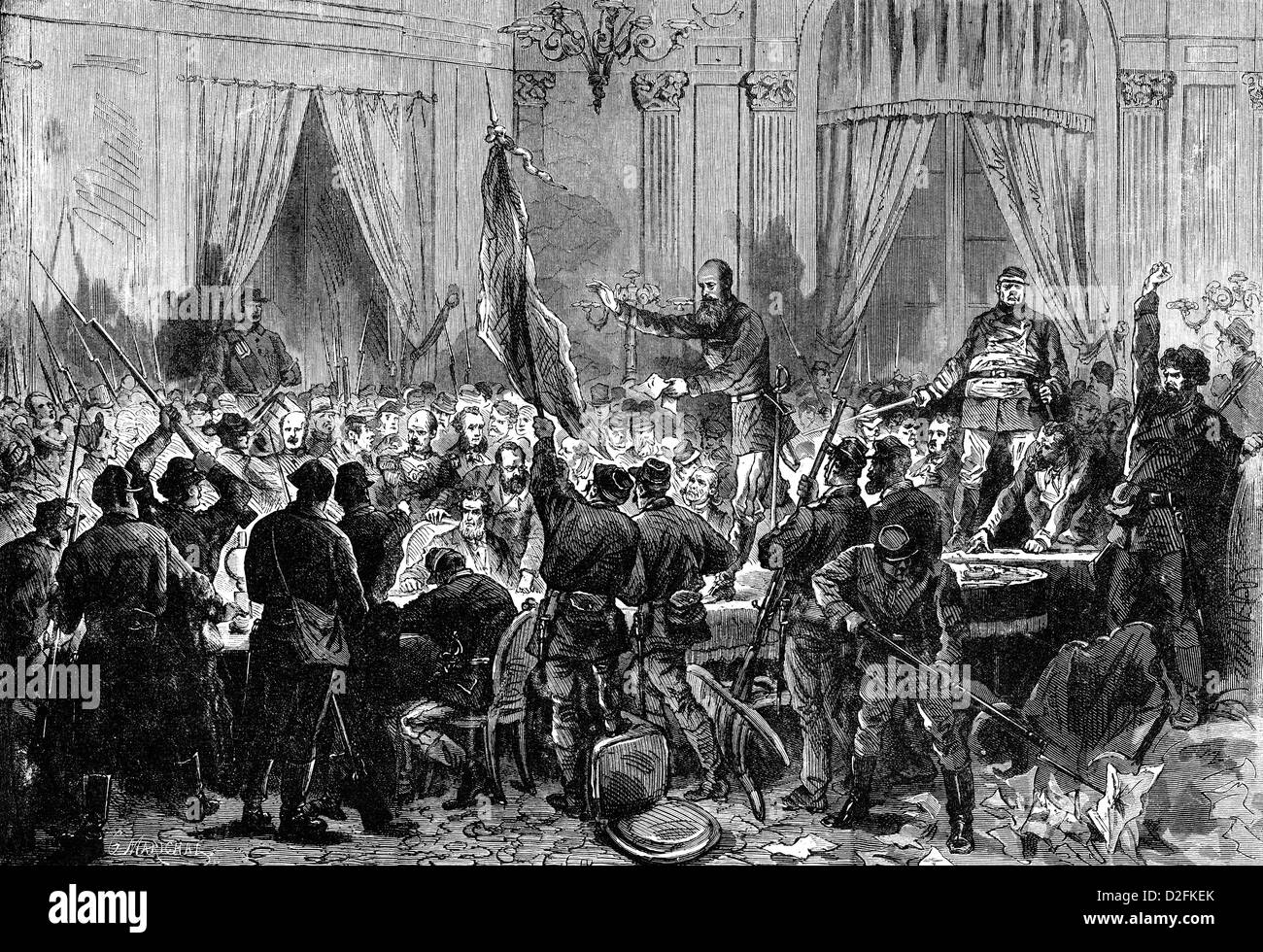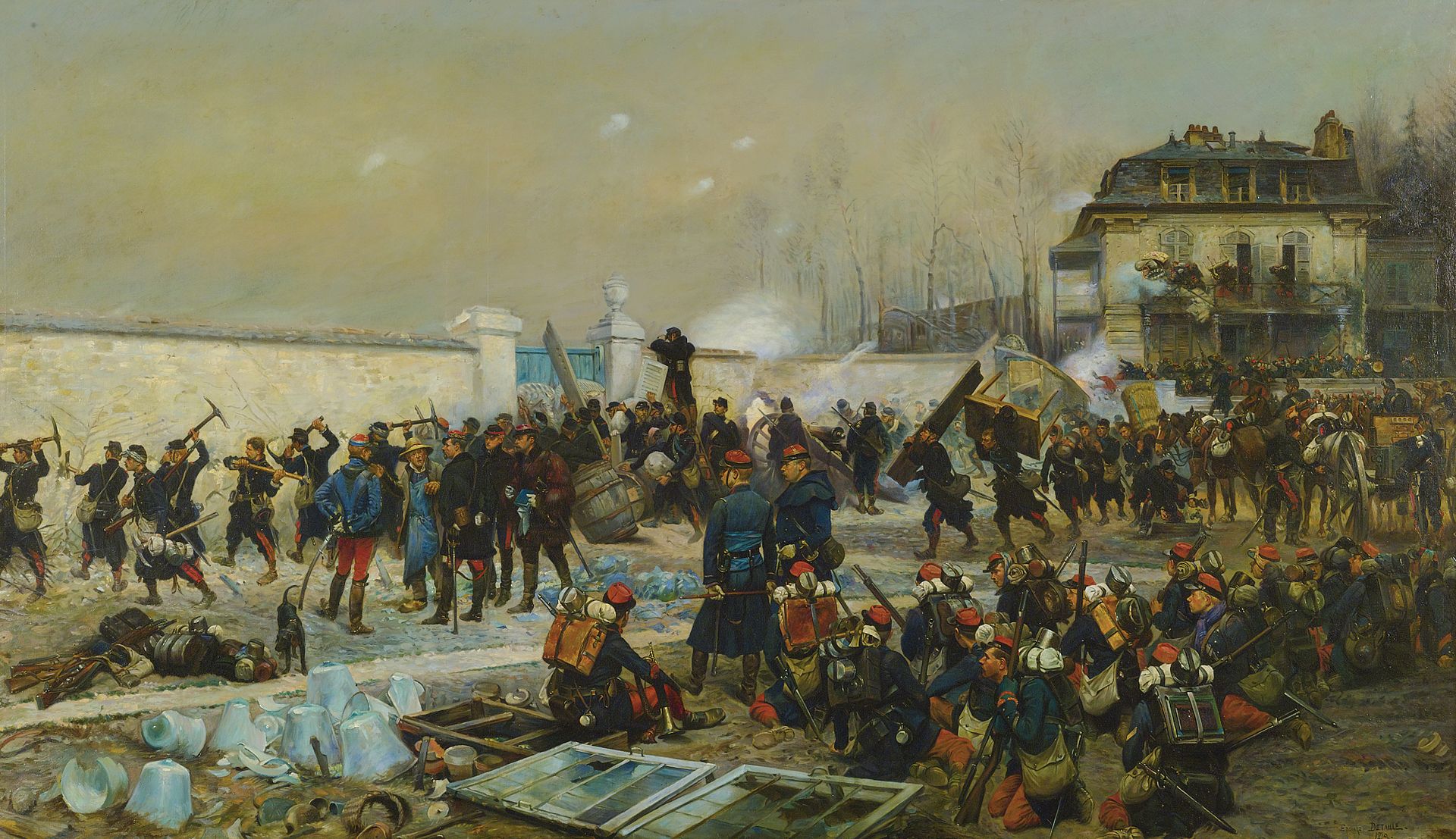Chapter Five - The Three Frances
"I will end this Republican menace inside Paris and without"
Francois Achille Bazaine, Letter to German High Command, February 1871
"Ultimately there are three Frances - the Republican one, the Parisian one, and the Bonapartist one - none of which have the power to represent all of France at the negotiating table"
Otto von Bismarck, German Chancellor, to Kaiser Wilhelm I, 11th February 1871.
German artillery outside of Paris. Up until now smaller calibre guns like these had been used, but the new
plan from High Command called for the heavier siege pieces to pound the city.
February in 1871 was cold and bitter. The ground was iron-hard and dusted with snow. Throughout the occupied regions, German rear-guard soldiers fought running battles with partisans who took to raiding supply wagons and burning depots. On the frontlines, they still held the upper hand, having turned away a Republican Army around Orleans, and another near Dijon, but on 14th February a surprise thrust by General Bourbaki's Army of the East had relieved the besieged border fortress of Belfort to much rejoicing.
Prussian High Command had so far ignored the fracturing of French politics. As far as they had been concerned there was still an enemy to overcome, and a war to win, and it mattered little who was directing the armies against them. Behind the scenes, however, the politicians of this newly minted Germany, still at this point more of an alliance of states than a true nation, were more concerned. The longer this conflict dragged on, the more they risked the other powers of Europe intervening. Indeed, Britain was already putting out tentative feelers for a peace conference. Either negotiations needed to be entered into or a decisive blow needed to be struck.
The problem was, it was unclear exactly where to direct either choice. Who was in charge? The Republican Government currently in Bordeaux? Blanqui and his Committee of Public Safety in Paris? Or the remnants of the old Bonapartist regime. Napoleon III was currently held in comfortable house arrest, but the surrendered commander of Metz, General Francois Bazaine, an ambitious Bonapartist, had approached both his former Emperor and Bismarck with an offer - release him and his army from captivity and transport them south, where they could topple the Republicans. Up until now German High Command had viewed this offer as nothing short of silly, a flight of fancy from a desperate man, but faced with a tenacious French resistance and a two-headed opposition in Bordeaux and Paris, some lobbied Bismarck to change his mind.
A plan was hatched for early March which would see a double-strike. One arm would see Bazaine and some 80,000 of his men, about half of the Metz force captured when the fortress fell, sent south across the lines to foment disorder. The hope was that Bazaine could either decapitate the Republican Government and negotiate full peace himself, or render the situation so confused the effective French opposition collapsed. The other strike was a full-out assault on Paris. Four days of heavy artillery bombardment would be followed by an assault on the city, if it hadn't already surrendered. It would be a death-blow to the radicals and, at the same time, be a propaganda victory for the German forces.
Some raised questions about whether a full-assault against a defended city could be achieved without substantial artillery bombardment, but Bismarck was worried slamming the city with siege guns for longer would turn world opinion against the German cause given the scale of the collateral damage likely. Four days, he reasoned, would be enough time to weaken the defences without provoking outrage in the foreign press and giving other nations a reason to intervene.
The date of the assault was set for the last day of February and four days before, on 24th, the large siege guns began to fire.




